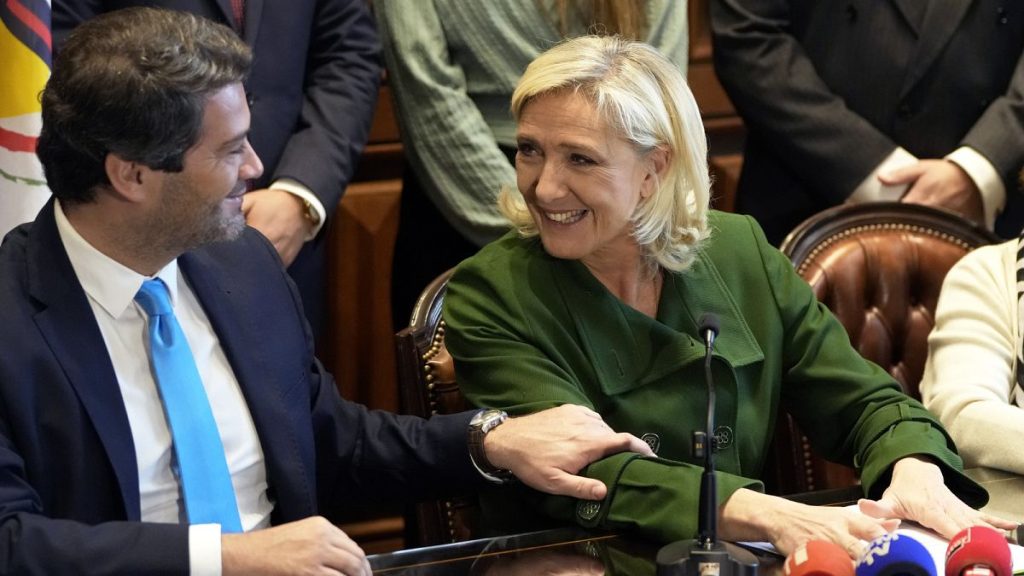Far-right leaders in Europe are discussing the possibility of re-configuring the right-wing in the European Parliament. The leaders of Europe’s most radical right-wing parties gathered in Brussels to discuss how to unite the EU’s fractured right-wing after making gains in recent elections. Parties such as the National Rally party in France and the League party in Italy are leading the discussions to form a bigger right-wing bloc to fight against corruption, illegal immigration, and to control borders.
The far-right parties in the European Parliament are currently split into two camps: Identity and Democracy (ID) and the hard-right European Conservatives and Reformists (ECR). The possibility of these groups merging could result in making them the third-largest or even the second-largest political force in the European Parliament. Leaders are actively engaging in discussions with their partners to potentially form a bigger right-wing group to have more influence and power in decision-making processes within the EU.
Uniting these radical right-wing forces is complex, as deep rifts exist over issues such as the conflict in Ukraine and pro-Russia sentiment. Some parties within the ID group are considered pro-Russian and oppose the EU’s support for Ukraine. Parties have made attempts to soften their stance on key dividing issues, such as support for Ukraine, in order to come to a consensus and unite under a bigger right-wing group within the European Parliament. The parties are navigating strategy and policy differences to potentially form a stronger right-wing presence in Europe.
French President Emmanuel Macron’s decision to call snap legislative elections has changed the stakes for the far-right parties in Europe. Marine Le Pen is eyeing the opportunity to take control of the National Assembly and install her protégé as France’s prime minister. This could give the National Rally party even more influence in efforts to form a far-right supergroup in the European Parliament. Viktor Orbán’s Fidesz party is also politically homeless in the European Parliament and could bolster the supergroup by joining forces with other far-right parties.
Some far-right parties have faced criticism and scrutiny over their relationship with Russia and controversial scandals. Efforts have been made to distance from pro-Russia sentiment and to soften stances on divisive issues such as support for Ukraine. Leaders like Marine Le Pen and Geert Wilders have adjusted their positions on key issues to align better with potential allies and partners within the right-wing bloc in Europe. As discussions continue among far-right leaders, it remains to be seen how they will navigate these differences to form a stronger political force in the European Parliament without compromising their beliefs and policies.
Centrist and left-leaning forces in Europe have expressed concerns over traditional center-right forces aligning with more radical right-wing partners. They warn that such alliances could have devastating consequences for Ukraine and Europe’s geopolitical stability. As right-wing leaders explore the possibility of creating a bigger right-wing bloc in the European Parliament, they must carefully consider their policies, alliances, and strategies to form a cohesive and influential political force that can effectively address key issues facing the region.


